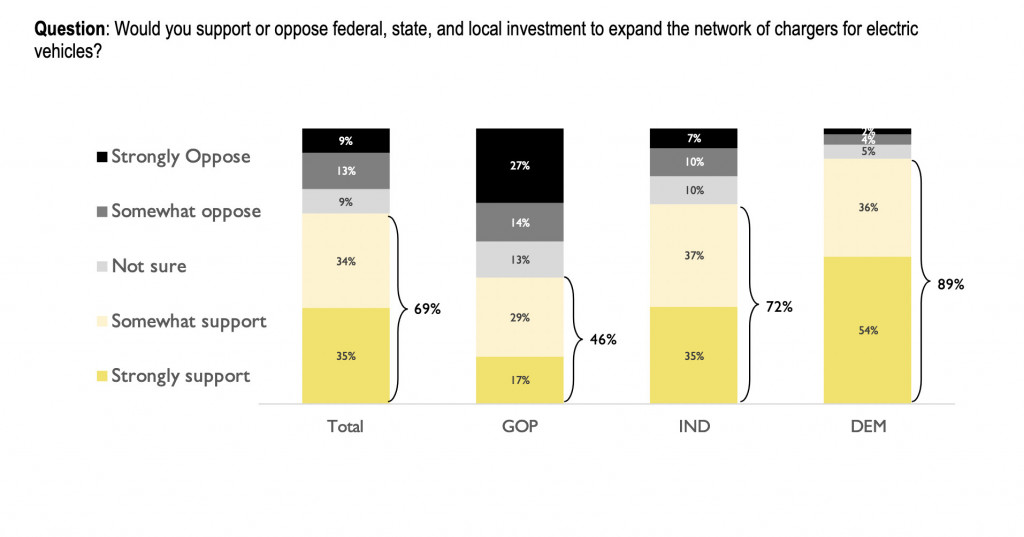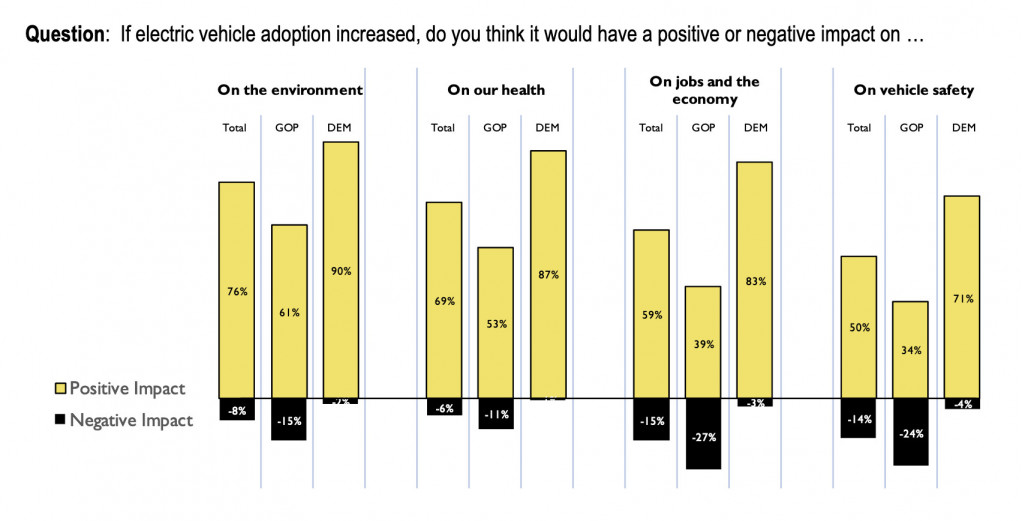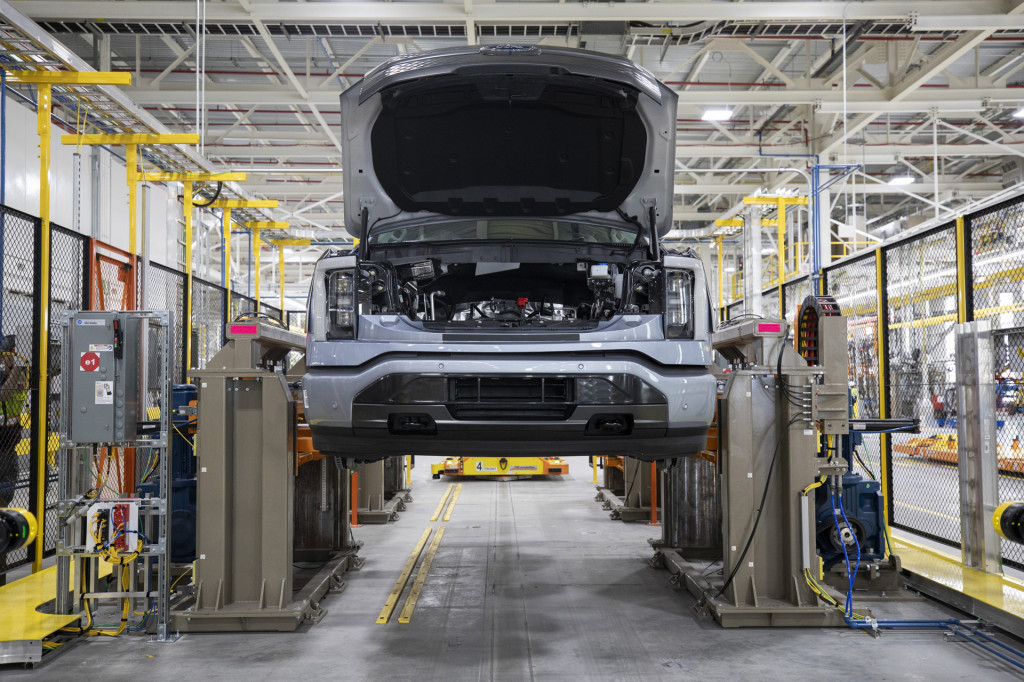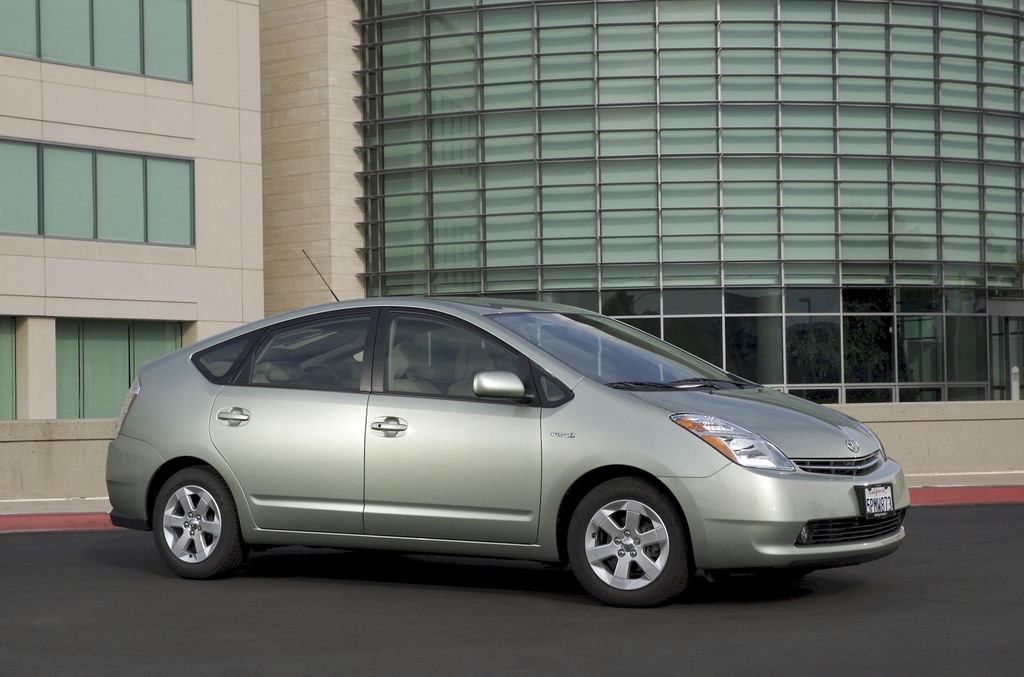The increasingly partisan divide in Congress over electric-vehicle-related policy spending may be disconnected from reality.
That’s one of the potential conclusions from a national poll released Monday by the Zero Emission Transportation Association (ZETA), a policy and advocacy trade group representing the industry around EVs.
The poll, which gathered responses last month, found that there is widespread bipartisan support for what it terms “smart policies designed to increase the adoption of electric vehicles.” According to ZETA, 79% of voters support consumer incentives that would help reduce the purchase price of EVs and 69% of voters would support federal, state, and local investments in EV charging infrastructure.

Support of EV charger infrastructure by political affiliation. - ZETA
It also found that one in five American car owners would “definitely choose” an EV as their next purchased vehicle, while another 27% would “strongly consider” an EV—adding up to nearly half of vehicle owners leaning very favorably to fully electric as a next vehicle.
The widest difference between the perspectives of Republicans and Democrats appears to be on EVs’ influence on jobs and the economy. The survey reported 83% of Democrats seeing EVs as having a positive effect, while 27% of GOP respondents believe that EV adoption will have a negative effect.

The impacts of EV adoption by politcal affiliation. - ZETA
The poll, which was conducted between February 14 and 22, surveyed 1,000 “likely voters who are also vehicle lessees or owners,” with the aim to mirror a wide range of demographics, including “nationwide ideology and geographic distribution.”
Respondents also provided a consistent affirmation that EVs in general are now considered “cooler” than gas-powered vehicles—elevating a previous public impression that might have only held for Tesla.
ZETA says that the results are evidence that policymakers who support the policies around EV adoption are on the side of prevalent public opinion. “By speeding up the rate of EV adoption in the United States, the federal government will combat climate change, boost our public health, create good-paying jobs, and deliver huge cost savings for American consumers,” said Dan Zotos, ZETA’s communication director.

2022 Ford F-150 Lightning pre-production
This might not seem like news if you’ve been following EVs for a long time. The energy-independent aspects used to attract Republicans and Democrats almost equally. decade ago, As recently as 2019, a survey from Climate Nexus found that 77% of Americans viewed EV positively—without a whole lot of variation across political affiliations.
An extension and expansion of the federal EV tax credit in 2019 had bipartisan support before it was cut out of a federal spending bill due to “extreme resistance” from the Trump administration. Trump had also criticized GM’s strategy to transition to more electric cars, saying that “all-electric is not going to work.”
Although the motivations have always been different. In 2009, we reported that Democrats outnumbered Republicans nearly two to one in purchasing hybrids like the Prius.

2009 Toyota Prius
There have been some previous indications that the American public isn’t necessarily as polarized as politicians are portraying. A couple of Pew polls conducted in 2021 suggested that Americans are mostly aligned on the environmental merits of EVs and that the vast majority support the expansion of renewable energy. And going back to 2017 the Brookings Institution pointed out that U.S. views on climate change had remained essentially constant since the Bush administration.
Despite this, Democrats haven’t been blameless in exaggerating the divisions, as many made “no climate, no deal” a mantra (or ultimatum) in negotiating over details for the Biden infrastructure bill, which originally included more provisions for EV infrastructure and renewable energy.
Is Congress exaggerating our divisions over EV incentives and renewable energy spending? Leave us your comments below.













